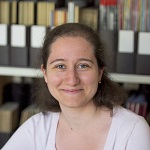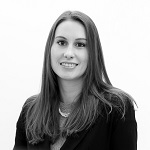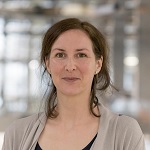| Date: |
Dates to be confirmed |
Venue: |
Online
|
| Type: |
Workshop series |
Fee: |
£265 (Members - £238.50) |
Register your interest
This workshop series is accredited with a Certificate of Attendance for continuing professional development (6 CPD hours). To be eligible, two live sessions must be attended.
Are my assessments fit-for-purpose? Can I trust my assessment results for their different uses? Are the changes to my assessments having the desired outcome?
These are some examples of important questions that research can help you answer to empower your assessment practice.
By understanding what good quality research is and how to conduct it, you will be able to gather and use research evidence effectively to inform decisions about your assessment design, improvements, and redevelopment.
This returning series of three 2 hour interactive workshops will provide you with a balance of theory and practice so you can further empower your assessments.
The workshops have been designed as an introduction to research and research methods for anyone who has a role in supporting or improving assessment practices.
You will explore a broad range of research and data types (including common qualitative and quantitative approaches such as surveys and focus groups), and critically reflect on when and why you would use each one. Whether you’re practically working with assessments in a classroom, or in an awarding context, or you’re a senior leader looking to gain insight into your organisation’s assessment quality, these workshops will provide you with the tools and knowledge to move towards a research-led approach.
Workshop dates
| Session 1 |
TBC | 12:30 - 14:30 (UK time) |
Title: |
Exploring the purposes and aims of research |
| Session 2 |
TBC | 12:30 - 14:30 (UK time) |
Title: |
Developing good practice in conducting and using research |
| Session 3 |
TBC | 12:30 - 14:30 (UK time) |
Title: |
Thinking like a critical researcher and research user |
Course outline
By the end of the three-week training course (three 2-hour workshops), you will be equipped with fundamental principles about research and you will have practised applying your research skills. This will help you to use research to support and improve your assessment practices.
- Session 1 - Explores the different types of research that are relevant to assessment practitioners, and the different ways that research can support assessment practices. You will also consider how to design the research questions to support the purposes of the research.
- Session 2 - Explores the practical aspects of conducting and using research. This will include exploring common research methods useful for the assessment context. You will learn about good practice in various aspects of research, including design, ethics, data management and data analysis.
- Session 3 - Provides opportunities to bring together the content from Session 1 and Session 2 by practising your research skills. This will include activities to practise designing your own study and also to critique published research.
Key learning outcomes
By the end of the three workshops, you will be able to:
- Distinguish between different purposes and aims of research.
- Identify ways by which research may support your assessment practices.
- Recognise a range of research methods that are relevant to assessment practices.
- Apply good practice when conducting your own research.
- Critically reflect on your own research activities.
- Critically evaluate other researchers’ studies.
Course trainers
 Dr Sylvia Vitello is a Senior Researcher in the Assessment Research and Development division at Cambridge University Press & Assessment. She holds a PhD in Experimental Psychology from University College London. Her current research focuses on assessment design for general and vocational qualifications as well as broader education topics such as equality, diversity and artificial intelligence. Across her research, she has used a range of quantitative and qualitative research methods.
Dr Sylvia Vitello is a Senior Researcher in the Assessment Research and Development division at Cambridge University Press & Assessment. She holds a PhD in Experimental Psychology from University College London. Her current research focuses on assessment design for general and vocational qualifications as well as broader education topics such as equality, diversity and artificial intelligence. Across her research, she has used a range of quantitative and qualitative research methods.
 Emma Walland is a Research Officer at Cambridge University Press & Assessment. Since joining the Research Division in 2018, she has worked on a range of assessment and education research projects. Her current research interests include assessment and education reform, technological innovations in education, and marking strategies and practices. Her educational background is in psychology and research methods, and she has recently completed a Postgraduate Advanced Certificate in Educational Studies.
Emma Walland is a Research Officer at Cambridge University Press & Assessment. Since joining the Research Division in 2018, she has worked on a range of assessment and education research projects. Her current research interests include assessment and education reform, technological innovations in education, and marking strategies and practices. Her educational background is in psychology and research methods, and she has recently completed a Postgraduate Advanced Certificate in Educational Studies.
 Jo Ireland is a Researcher in the Research Division of Cambridge University Press & Assessment. She conducts qualitative and quantitative research into a range of assessment topics, including error detection and prevention, innovative marking methods and the long-running Aspects of Writing series of studies. Jo produces data management policies and promotes good data management practices. She holds a Master's degree in Information and Library Management and is an active member of the University of Cambridge Data Champions network.
Jo Ireland is a Researcher in the Research Division of Cambridge University Press & Assessment. She conducts qualitative and quantitative research into a range of assessment topics, including error detection and prevention, innovative marking methods and the long-running Aspects of Writing series of studies. Jo produces data management policies and promotes good data management practices. She holds a Master's degree in Information and Library Management and is an active member of the University of Cambridge Data Champions network.